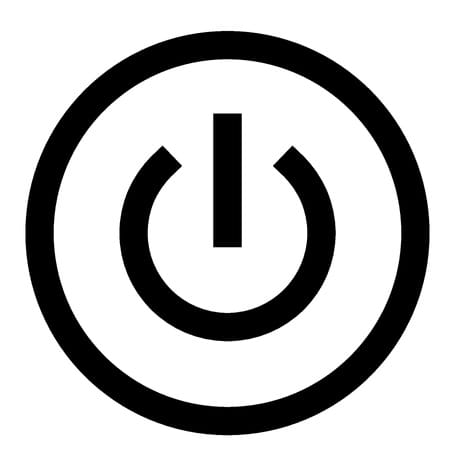International Business Expansion and The Netherlands | Tilting Windmills
The "International Business Expansion and The Netherlands” guides published by consultants & the Dutch government are good. Our real-life guide is better.

The “Doing Business in the Netherlands” guides published by consulting companies and the Dutch government, are well-meaning and filled with good intentions. But they are much too general, not to mention biased, to be useful in an international business expansion.
Describing the macroeconomic conditions, general labour force statistics and a tax treaty network does not help ecommerce store owners, startups with international expansion ambitions or small to medium size companies planning on expanding into Europe.
All countries promote themselves as a destination of choice for businesses. But objectively, is the Netherlands the best location for international business expansion?
A better guide to ‘doing business in the Netherlands’ is needed. Especially for startups – if the Netherlands continues to advocate itself as having Silicon Canals.
What are the problems faced by companies seeking a European expansion? Is the Netherlands, with its pastoral pictures and tall, friendly people, the best country in which to base your European operation?
Or does this picturesque land pose problems to a SMB or startup considering a new market entry?
Consider the following...
The European Union’s Mythical Single Market
The EU is advertised as “the largest economy in the world with a GDP per head of €25,000 for its 500 million consumers.” That fact ignores that both the consumer and business markets are fragmented by language, borders, culture, currency and regulation.
Totalling up 500 million consumers and asserting that Europe is a single market is simply wrong. The European Union is made up of 27 different countries -- each of which is a separate market. When planning a European market entry strategy, you must consider there are very few shared consumption characteristics among European consumers and businesses.
Two simple examples illustrate:
A Country's Breakfast Consumption -- Business to Consumers
Danes eat grød for breakfast, oats cooked in water or milk. The Dutch eat hagelslag which resembles the type of sprinkles that other nationalities usually reserve for cakes, but is served on top of buttered bread in the Netherlands. Germans eat bread, cheese and sliced meat. And there are about 300 kinds of German bread. In Italy, breakfast is a coffee, croissant and a cigarette. Yes, these are generalizations. But some generalizations are applicable and reflect real differences.
This simple, some would say silly, example illustrates that the consumer market within Europe is exceptionally fragmented. Europeans take great pride in telling you that they are different from their neighbors. Indeed, that is what makes the continent so interesting.
But having to establish a country-specific marketing plan multiple times is not what any CEO of a company considering an international business expansion wants to hear.
The reality is Europe is a fragmented market.
The Cloud Computing Conundrum - Business to Business:
Cloud computing is pervasive in the Netherlands. The Dutch are mindful of privacy concerns, as are all Europeans, but the efficiency and savings for centralized storage make sense to pragmatic people. Similarly the Danes upload data enmass. The highest usage goes to one of the smallest countries, Finland.
Not so in Germany. Germans rank near the bottom, next to Italy and Spain, in cloud computing usage. Germans much prefer to have their data live on the edge devices than upload it to centralized servers.
In the US & Canada cloud computing is simply assumed to be the best way. Within Europe there is a wide variance in usage.
If a basic infrastructure service, such as cloud computing, has not yet reached the levels of penetration found in the US, then what other services (which either require or resemble cloud computing) can be sold at scale?
These two examples illustrate my assertion there is no single market within Europe. Both the consumer and business markets are a composite of diverse parts, each with their own consumption pattern.
To capture a significant share or the supposed European Common Market, you must collectively address twenty seven different markets, each of which are different. Aggregating consumers or businesses across such a fractured landscape, is an achievement that will be worthy of mythology. Regardless of which country you choose, the Netherlands or another, to locate your international business expansion.
High Company Formation and Compliance Costs
Incorporating a company in the US or Canada can be done for less than the cost of dining out. Bookkeeping and accounting are necessary evils overcome with a Do-It-Yourself attitude and the help of an inexpensive accounting software program. Taxes can be complex and compliance time consuming, but there is an army of assistants available to help.
Incorporating a company in the Netherlands, a relatively low-cost legal jurisdiction, will cost a minimum of U$1500. For ongoing compliance costs, you must have a working knowledge of Dutch bookkeeping practices, or hire a local service provider. The minimum ongoing annual costs of bookkeeping, accounting, and tax accounting are approximately €3500 (U$ 4100) per year. That is without any costs to manage exceptions that may be caused by mistakes or oversight. And there will be exceptions.
Unless you understand the local language, you will have to hire a service provider for every interaction with the Dutch government and/or Chamber of Commerce. Both organizations are critical to the ongoing operations of any company. While English is used to describe an overview of both organizations on their respective websites – any filing or inquiry will be most efficient in Dutch.
Failure to file correctly results in fines and possible personal liability.
While the Dutch are accomplished English speakers, the inherently technical terms found in a business's financial operations, accounting and tax compliance will defeat even the most accomplished. (If you speak a second language, try explaining the concept of simple interest in that second language to a native speaker. That illustrates my point.)
The reality is that some type of European-based entity will be a necessity for a number of reasons. But the costs and compliance required of the company using the Netherlands as a base for their international business expansion can’t be assumed to be the same as in North America.
